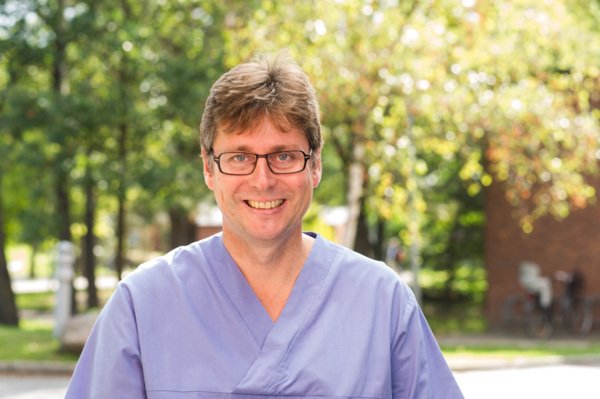Aimed at more effective analgesic
Per-Johan Jakobsson, professor of translational inflammatory research, wants to gain a better understanding of chronic inflammatory diseases such as rheumatism with the aid of proteomics, the large-scale analysis of proteins. His research on prostaglandins may lead to more efficacious drugs for pain and fever in the long term.

Per-Johan Jakobsson is researching to improve the situation for patients with chronic inflammatory diseases. One of his areas of research is prostaglandins, a group of substances that are similar to hormones. If we can gain a better understanding of how the body forms these substances, it will be possible to develop better anti-inflammatory drugs.
"Prostaglandin E2 encourages inflammation and leads to pain, fever and a feeling of malaise, which we may choose to alleviate with drugs," he says. "The problem is that current pharmaceutical products for this, such as aspirin, also dampen the production of other types of prostaglandins. These are useful in different ways, so it is unfortunate that they are also inhibited."
Most significant finding
Per-Johan Jakobsson's most significant finding so far is the enzyme PGES, which he discovered and described. This enzyme is necessary for the production of prostaglandin E2. By blocking PGES it would be possible to selectively reduce prostaglandin E2 without inhibiting other, more beneficial types.
Per-Johan Jakobsson is one of the co-founders of NovaSaid, which, together with the Indian pharmaceutical company Cadila, is now looking for a drug candidate that can block PGES. Jakobsson continues his basic research at KI, which has broadened over the years.
"One important path in my research group at the moment is proteomics, meaning the large-scale analysis of proteins using mass-spectrometry. Among other things we use it to understand different pathological conditions better. I am a clinician in rheumatology, but we also work with clinics in other areas so that their patient material can be utilised to its full potential."
Text: Anders Nilsson, first published in Swedish in the booklet "Från Cell till Samhälle 2014"
